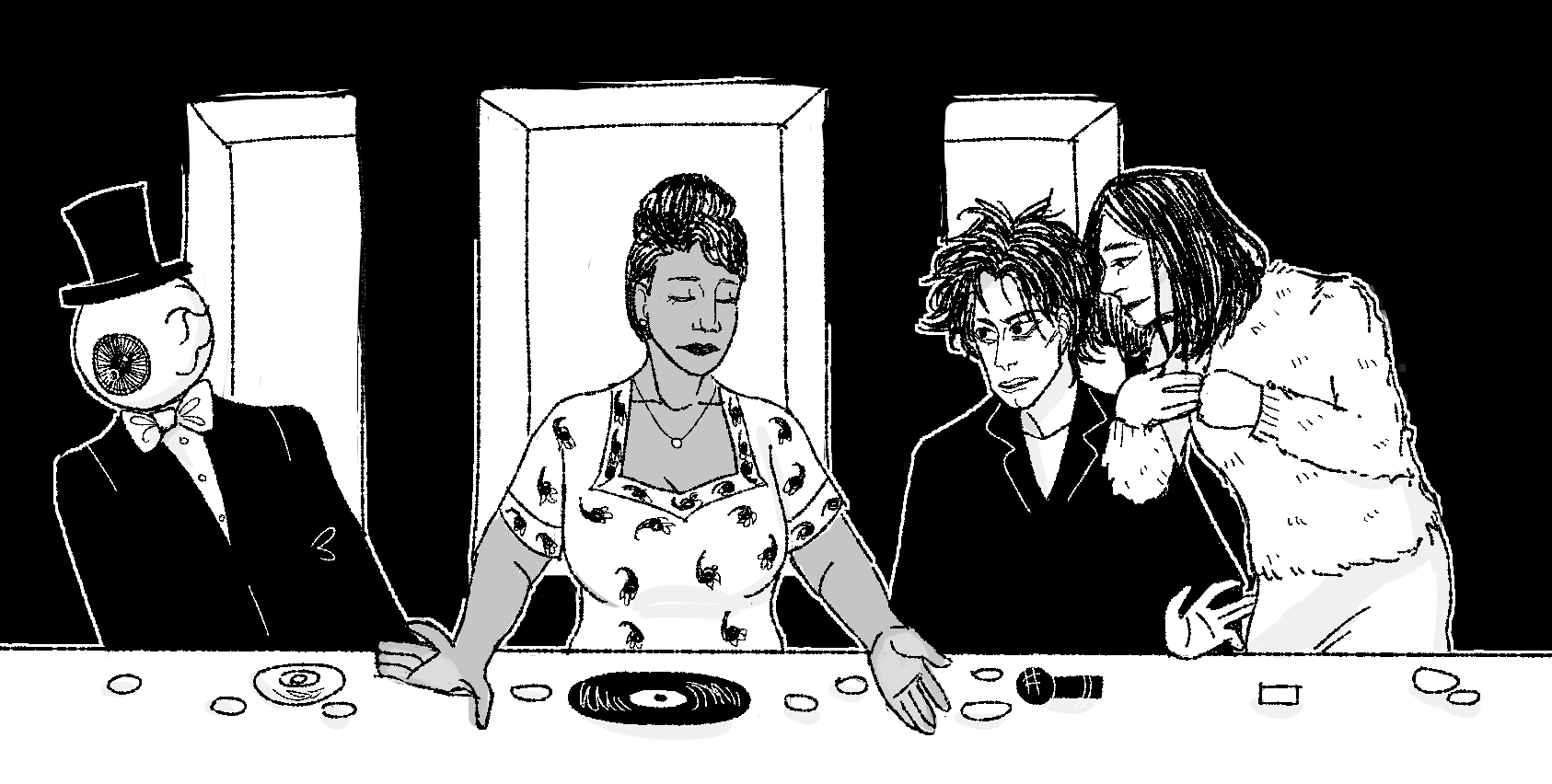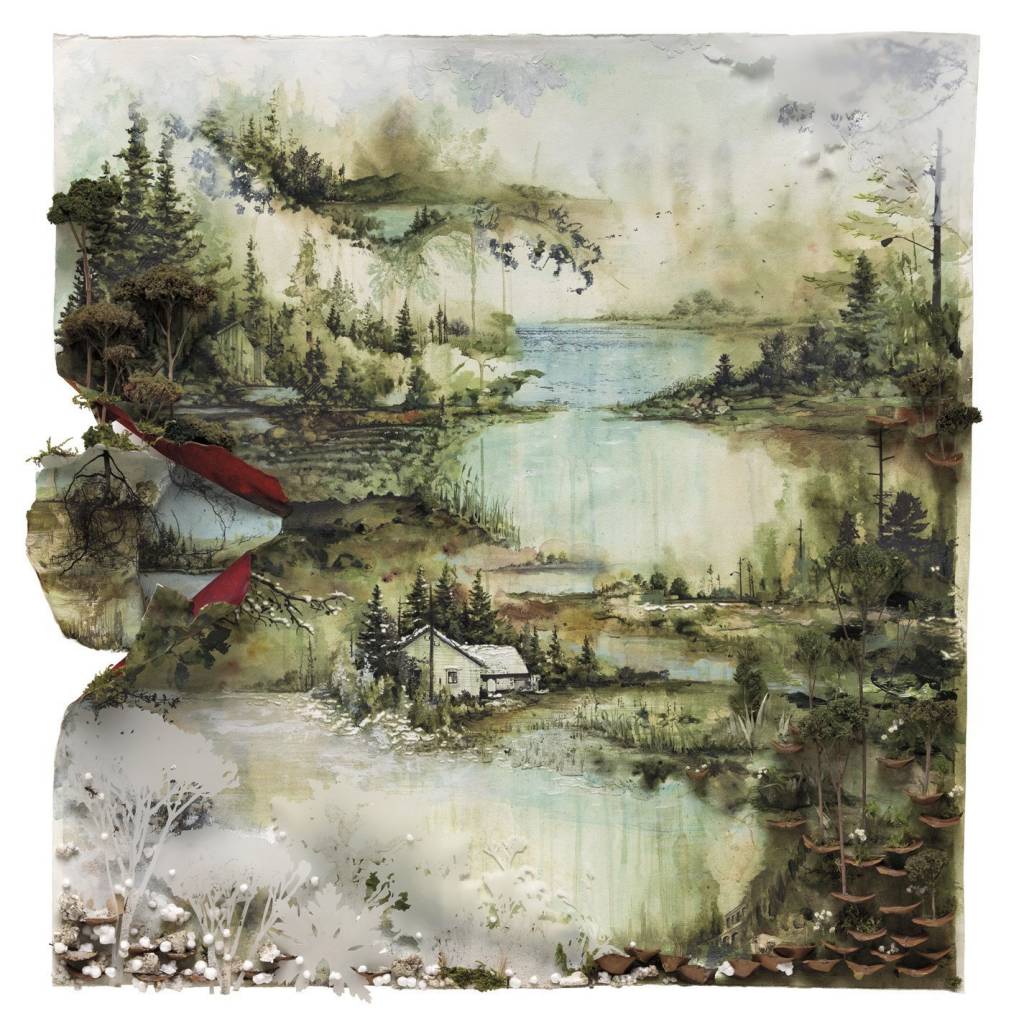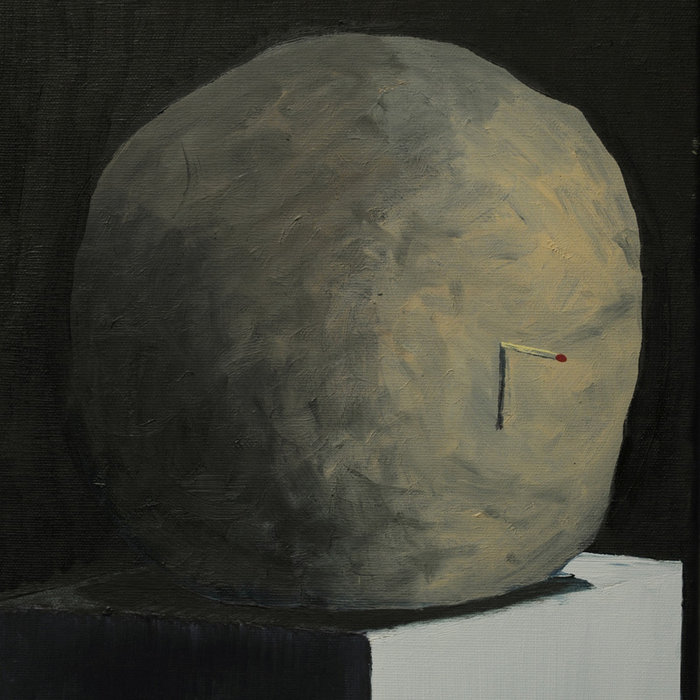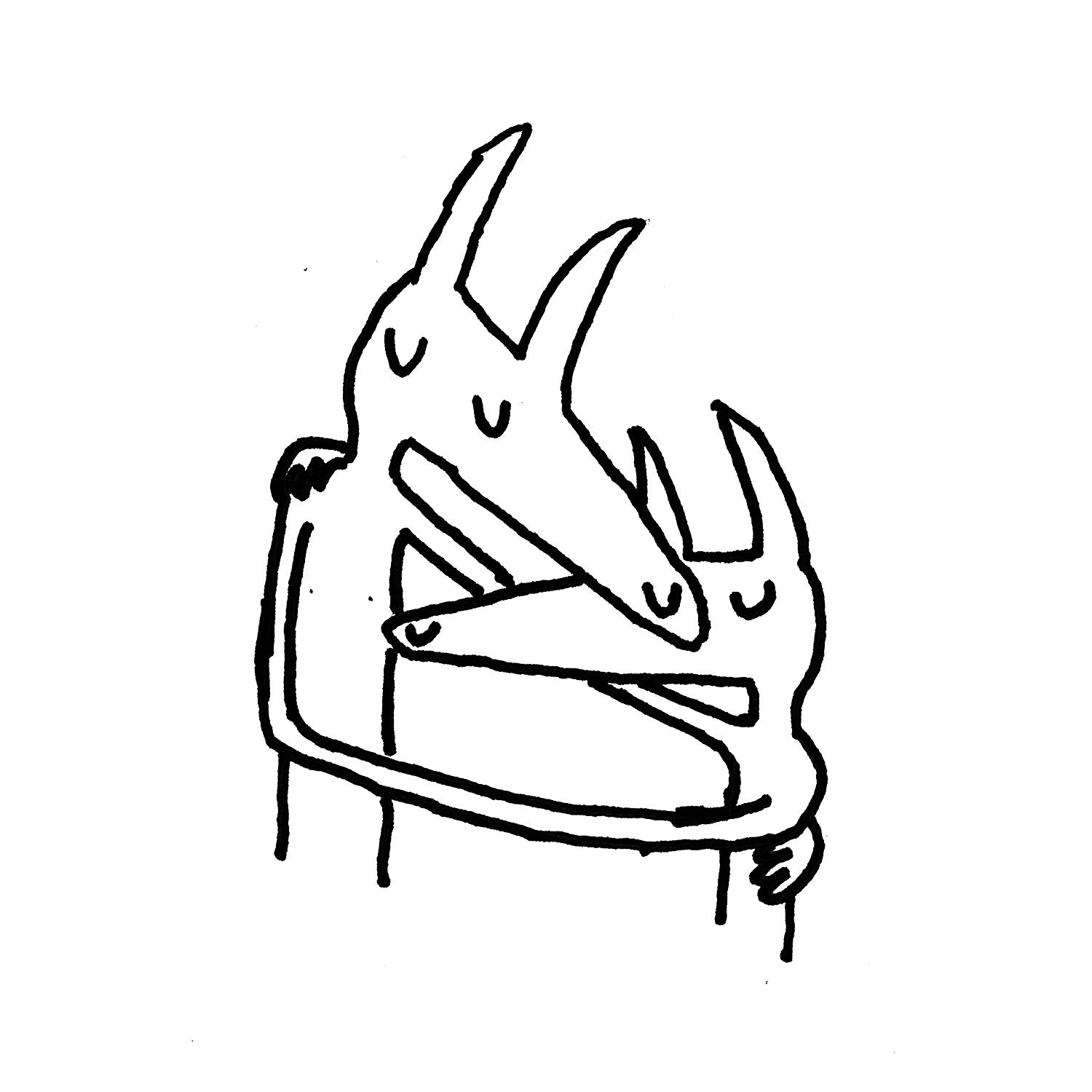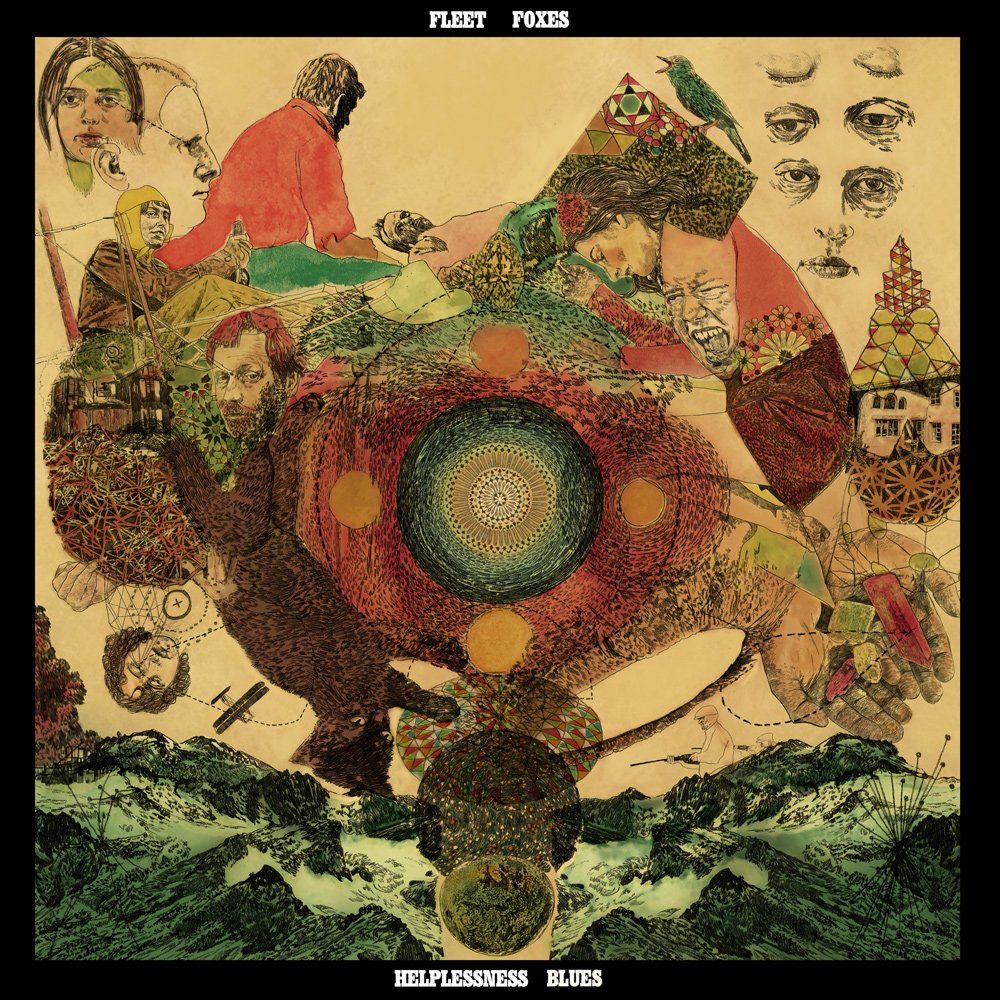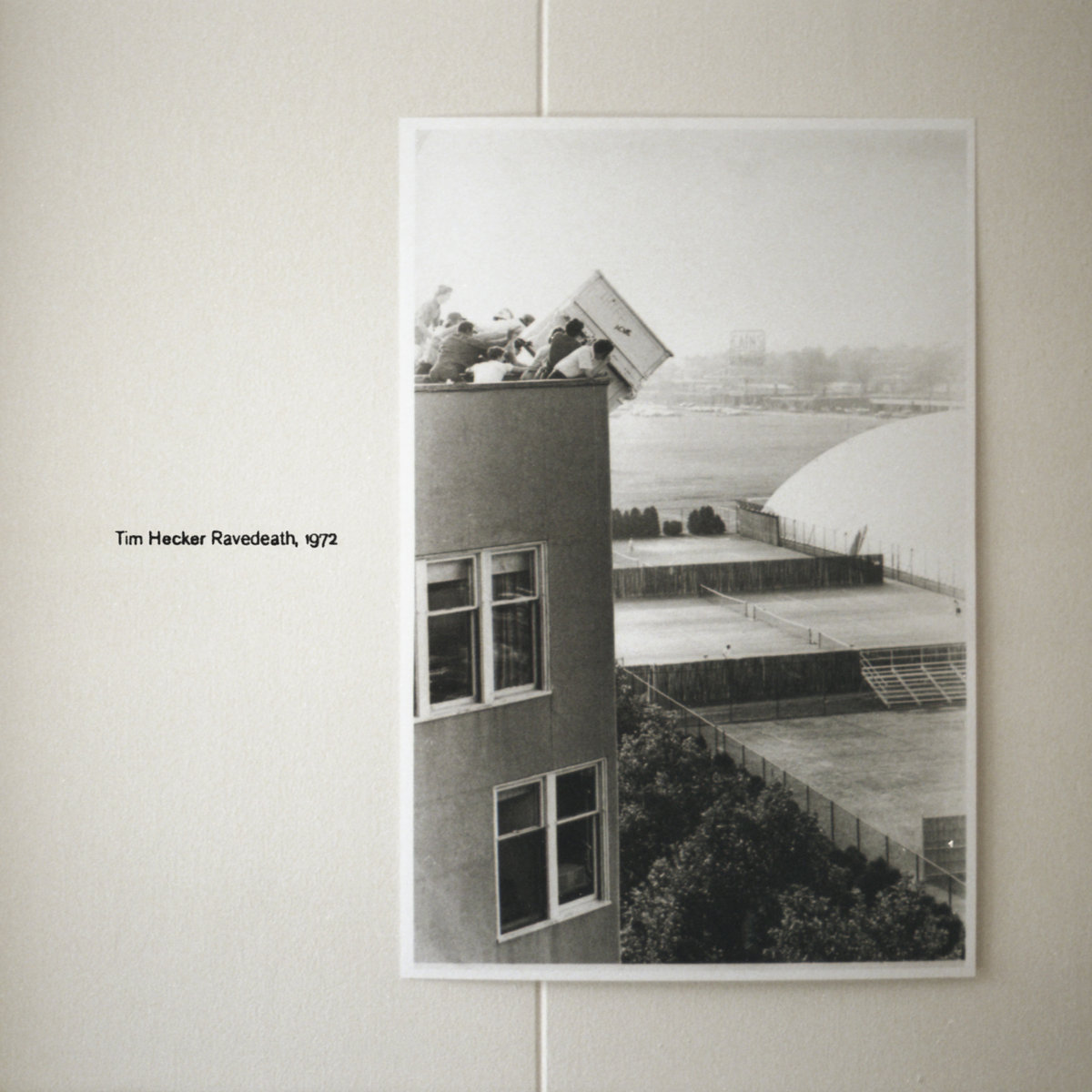Das Jahrzehnt neigt sich dem Ende zu, wir blicken zurück auf eine Vielzahl von großartigen Platten. Heute werfen wir einen Blick auf 2011, quer durch alle Genres, von Bon Iver über Chelsea Wolfe bis zu M83.
Bon Iver – Bon Iver, Bon Iver (Jagjaguwar, 2011)
Mehr als bei den meisten Acts geht eine Betrachtung Bon Ivers Kunst immer intensiv mit der Geschichte ihres zentralen Akteurs einher. Der Wisconsin-Trauerbarde, der sich zurückzog in eine kleine Hütte im Wald, um eines der emotional mitreißendsten Alben der 2000er zu schreiben, ist bis heute ein Bild, das stetig bei Bon Iver groß im Hintergrund hängt. Der intensiv weitreichende und unbestreitbare Einfluss, den Justin Vernons Musik auf den musikalischen Zeitgeist ausübt, geht jedoch weit über den Kerl-im-Wald-mit-Akustik-Gitarre hinaus und die betrachtete Dekade war die Leinwand für diesen Wandel. Nachdem Justin sich auf Kanye Wests My Beatiful Dark Twisted Fantasy (Roc-A-Fella, 2010) als Stand-Out Nebencharakter in das Scheinwerferlicht der 2010er katapultierte, präsentierte sein zweites Studioalbum als Bon Iver ihn als einen der feinsten Musiker und Songwriter der Dekade.
Jenes nach ihm selbst benannte Album brachte den Frühling nach den winterlichen Anfängen des Projekts und ließ seinen Hauptakteur aufblühen. Opener „Perth“ bricht wie Sonnenstrahlen durch die klangliche Kälte, mit einer Wand aus verzerrten Gitarren und triumphalen Bläsern. Von da an entfaltet sich das Album als elegantes Schauspiel von lebendig-emotionalem Songwriting. Jeder einzelne Song bietet eine eigene kleine Welt, um verträumt verloren zu gehen und seine eigenen Gedanken frei schweben zu lassen. Justin Vernon zeigt sich als Reisekumpan auf der Wanderschaft durch die Klangräume seiner Musik. Bon Iver bringt so nicht nur seinen zentralen Autor in den Fokus, sondern auch den Hörer, und kaum ein Album brachte das besser zustande in dieser Dekade.
– Dani
The Caretaker – An Empty Bliss Beyond This World (History Always Favours the Winners, 2011)
Ambient music enigma James Kirby AKA Leyland Kirby, hailing from Manchester UK, has made himself a name under several different monikers: Releasing disastrous Dark Ambient and Drone recordings as V/Vm or The Stranger, putting out smooth Ambient records under his own name, most of his well-known records were published as The Caretaker.
An Empty Bliss Beyond This World, Kirby’s breakthrough record, is hard to capture with written words. Words as tools of long-term-memorisation and cultural memory function as direct opposition to what this composition is conveying. The loss of words, which consecutively implies the loss of memory, the loss of self, the loss of reality itself. Memory loss and dementia, haunted nostalgia and asphyxiating yet paralysing axing depression are the main topics that are being tackled in An Empty Bliss, through sound mixing and editing Dixieland and Marching Band records from the 30s-50s, by making them sound distant and hollow. Melodies rise from, vanish in and repeat themselves through the crackling and broken sound of a worn record player, sounding from a ballroom long forgotten and lost in time.
– Gaps
Car Seat Headrest – Twin Fantasy (n/a, 2010)
If one had to name a stage in life that seems to have been overly exploited by artists when it comes to making music, it would perhaps be the teenage years, those plagued with such a turmoil of emotions and confusion that they become the perfect breeding ground to be explored through art. For this reason, it can be hard to find a record that does it in the right way, yet Twin Fantasy manages to do just that.
Perhaps Will Toledo’s most emblematic project, this record draws influence from so many different sources that it is hard to merely describe it as Indie Rock. Twin Fantasy revels in its Lo-Fi production, turning it into an essential part of its own character in a similar way as apt directors manage to do with the scenery of a city, up to the point in which the story can’t be properly understood without it. This is particularly evident when compared to the relaunch of the record in 2018, which has a much crisper production, delivering a more fleshed-out album that focuses on the catchy elements of the songs. But however polemic this statement might be, it’s undeniable that the limited circumstances in which the original Twin Fantasy was created contributed to give the record a closer, more honest feeling that emphasised its potential for relatability and furthering the Bedroom Pop scene.
Another fundamental element is, of course, Toledo’s vocal performance, which has a quiet yet deeply emotional quality to it, sometimes disrupted by raw screaming that adds to the sentiment the story-telling conveys in on itself. His lyrics manage not only to conjure very vivid imagery, but to encompass all the confusing feelings intrinsic to youth: of unrequited love; of the difficulty that comes with self-acceptance and the discovery of one’s true self; of the fears and incidents that seem so petty when looked at through the spectacles of adulthood, making them highly relatable.
It must be said that the album relies a lot on elements already seen in various genres; Garage Revival’s catchy riffs and vocal style; Post Punk Revival’s uncomplicated bass lines; Shoegaze’s omnipresent distortion and reverb; Britpop’s self-deprecating lyrics. However, it did so in an interesting way at a time in which it looked like the best thing listeners could get was yet another decaffeinated Strokes album. Twin Fantasy deviated from regular song structure and dynamics more than most traditional Indie and that is to be recognised.
Twin Fantasy is not to be judged as an influential record because of its ground-breaking use of sound or rhythmic composition. If anything, its simple instrumental structures are proof that when someone has the need to express themselves, they’ll find the means to do it, however limited they might be and that is an attribute of art that should never be lost.
– Reg
Chelsea Wolfe – Ἀποκάλυψις / Apokalypsis (Pendu Sound, 2011)
This past decade has been a very busy one for Sacramento singer-songwriter Chelsea Wolfe – since the release of Apokalypsis, Wolfe’s signature, effortless blend of Doom Metal, Gothic Rock, Folk and Dark Ambient has propelled her into being one of the most prominent figures in the darker corners of the 2010’s musical landscape. And Apokalypsis really does represent a milestone in her career – not only because of the cult following it’s garnered, but also because it represents a definitive moment in establishing Wolfe as an important up-and-comer with her own distinctive sound to bring to the table.
The value of the record itself is far from being just contextual – Apokalypsis is deliberate and purposeful in its darkness and thick, caustic ambient. The lo-fi, grainy texture adds a layer of heaviness to the album’s tone, which is by turns noisy and unsettling, and gloomy and desolate. It opens on an absolutely terrifying note, with the bloodcurdling screams of ,,Primal/Carnal“. Throughout the record, Wolfe’s vocals range from hazy and ethereal on tracks such as ,,Mer“ and ,,Tracks (Tall Bodies)“ to intense and bluesy on ,,Moses“, to ghostly and disembodied on ,,Pale on Pale“. Apokalypsis also demonstrates her skill and range as a musician – the album’s atmosphere is absolutely gripping, never breaking immersion, whether it be on the Post-Punk tinged rhythm of ,,Demons“ and ,,Friedrichshain“, the lovelorn crooning on ,,Tracks“, the trudging, foreboding heaviness of ,,Pale on Pale“, ,,Mer“’s disorienting, intoxicating groove or the otherworldly, Trip-Hop-esque ,,Movie Screen“.
The sparse, cryptic lyricism does less to explain and more to suck the listener further into the record’s whirlpool; however, that doesn’t mean it’s thematically incoherent. The word apokalypsis itself is Greek for “revealation”, and as Wolfe has mentioned herself, the album’s main themes deal in learning and accepting truths, “whether they are beautiful or hideous”. That description in and of itself suffices to explain the experience of Apokalypsis – by turns beautiful and hideous, but always present, challenging, demanding attention.
– Kata
Fleet Foxes – Helplessness Blues (Sub Pop, 2011)
It’s almost comical to think back to that bygone era of late 2000’s – early 2010’s coffee shop hipster indie folk that bands like Fleet Foxes were born out of. That being said, this Seattle outfit is a far cry from the generic, pretentious and trope-y ironic mustache-toting indie bands of yon, with Helplessness Blues being one of the genre’s strongest statements as of yet.
After their universally acclaimed debut LP, Robin Pecknold and co. had set up high expectations for themselves, which they exceeded in every sense: Helplessness Blues is an infinitely more sonically rich and varied, thematically coherent and intelligent, sophisticated and pointed release.
It’s a coming of age story for the Millennial generation cautiously dipping their toes into adulthood, at a point in history where certainty and stability were scarce. The opening lyrics of the album are a perfect establishing shot: you’ve hit the age when your parents had already settled down and had kids, but for your twenty-something year old self, this image of domesticity and devotion to another feels impossibly out of reach, and you inevitably start to wonder what’s wrong with you. Laments on mortality, responsibility, growing pains, identity, the passage of time, and nostalgia for past selves are all poetically interwoven into the rich tapestry that is this album. The title track essentially works as a manifesto of a psyche trying to grow into itself, but often being paralytic with fear, doubt and bewilderment. Pecknold’s lyrics poignantly express a yearning for community and purpose, idealizing an image of a simple, pastoral life – which in itself rings familiar for many young people who feel like they’re collapsing under the oppressive, alienating structure of modern neoliberal living. Despite how bleak all of this can sound on paper, the album is far from depressing- its overwhelming hope and excitement for the future despite all odds is contagious and inspiring. Complimenting the sharp lyrical content are gorgeous instrumental arrangements, along with the band’s characteristically creative use of vocal harmonies – all elements that elevate Helplessness Blues beyond a time capsule of a bygone genre and make it just as relevant and hard-hitting as it was nearly a decade ego.
– Kata
Giles Corey – Giles Corey (Enemies List, 2011)
Giles Corey, a musical project from Middletown, Connecticut was started by Dan Barret, a member of the popular Post-Punk and Shoegaze band Have A Nice Life. Their debut album Deathconciousness (Enemies List, 2008) was not only an iconic album but also a personal favourite. Regarding Giles Corey, Barret once said that he wants to write some Country and Western songs and turned Folk music into something that is coming from him and speaks of restricting some instruments.
Imagine your existence sucks at every moment and you don’t get to live a life you always dreamt of, living in absolute pain and agony and suffering from depression. This album relates to all of that happening at once, with lyrics that are less of song lyrics and more of hauntingly painful poems scribbled on the walls of an asylum by a depressed entity. It just brings out all those emotions in the most dark and atmospheric soundscapes, with an exciting mix of folky acoustic guitars backed with dark ambience and a light inclusion of Have A Nice Life-esque Rock music and followed by Barret’s lucid vocals. For the most pat, those vocal constributions sound soaring and overwhelming but there are times when the vocals become almost unintelligible, thanks to massive overlapping of vocal sounds that are all over the place.
As the album progresses, oddly enough, we see some major Neutral Milk Hotel influences coming in, as if Barret is trying to pay homage to band. Jeff Mangum’s Indie Folk project from the 90s was seriously ahead of their when it comes to their respective genre, especially In The Aeroplane Over The Sea (Merge, 1998). The latter sections are prominentely filled with such influences, but with a twist. The fast and happy sounding guitars in ,,Spectral Bride“ get overshadowed by Barret’s atmospherics and vocals, which seemed to be one of the most important moment of the album so far, at the same time making it into a hybrid. A record, starting out with depression backed with Dark Folk composition and ending with death, backed with more energetic yet depressive Folk-Rock sounds. This album really acts like a soundtrack of a person’s messed up life locking himself inside a room filled with black walls. An unforgettable piece of music, which is worth revisiting.
– Hasnain
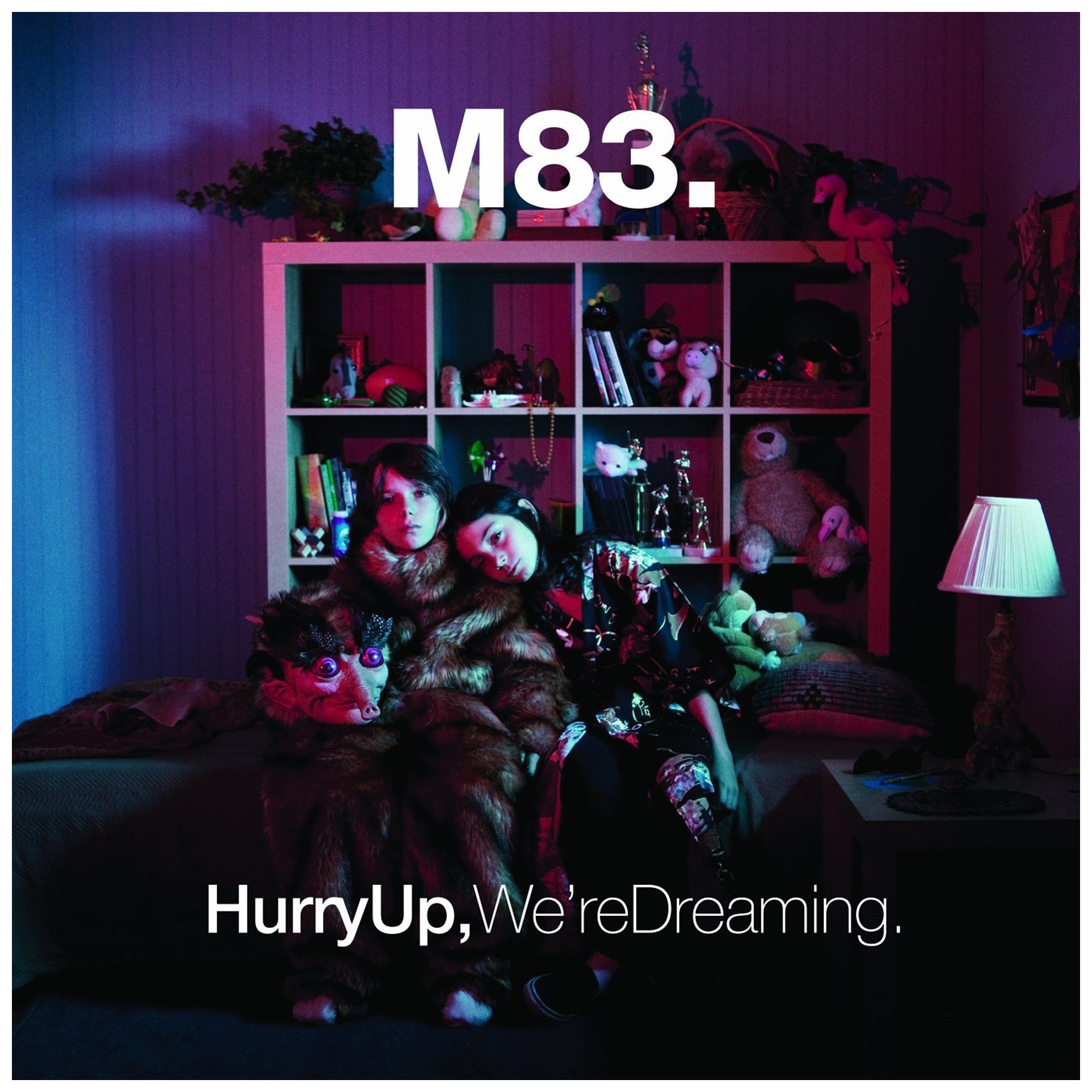
M83 – Hurry Up, We’re Dreaming (Mute, 2011)
A journey through the rooted and the floating, the instant and the longing. Defying our concept of gravity, Hurry Up, We’re Dreaming, the sixth studio album by M83, gracefully throws away the boundaries between dreams and reality. The Electro-Pop act was founded in 2000 by French Anthony Gonzalez and Nicolas Fromageau. Eleven years, five albums and several member changes later, Gonzalez released their first double album Hurry Up, We’re Dreaming on October 18th, 2011. With the intention of creating something more harmonious than a simple collection of tracks, the 22 songs are divided into two separate entities interacting with each other. The sheer volume of tracks can be deterring; however, once you start listening from beginning to end you might just find yourself rooted on the spot with time flying by.
The “Intro” effectively condenses the essence of the record: increasing density, extensive compositions and a decay after reaching a powerful pinnacle. Gonzalez skilfully exhausts every possible suspense curve and leads you towards an emotional rollercoaster. The vivid builds and breakdowns of “Midnight City” elicit the feeling of utter freedom, while the soft choir and modest use of instruments in “Splendor” leave you floating. The slow crescendo and powerful finale in “Wait”, put you into a state of wistful longing; immediately eased by the childlike naivety in “Raconte-Moi Une Histoire”, that might make you grin in an instant. With the finale of the first disc “Soon, My Friend” Gonzalez proves his love for grand choirs and orchestral elements.
The journey then continues with his typical zero-gravity arrangements, such as “My teas are becoming a sea” and later on “Echoes of mine”, all scintillating with complex compositions. Towards the end “Steve McQueen” takes off like a rocket, with the drums kicking in like afterburners until finally reaching a liberating weightlessness. Dreaming, as a main theme, reflects in every track. Denying the concepts of time and space, it dosen’t attempt to be a realistic view of the human experience; and yet listeners from every corner of the music universe might hear a piece of their lives in it. At last the “‘Outro” dismisses the audience after 74 minutes into sheer catharsis. The city is empty, the journey complete and it’s time to wake up.
– Anja
Tim Hecker – Ravendeath, 1972 (Kranky, 2011)
Mit seiner detaillierten Betrachtung des musikalischen Zerfalls, Ravedeath 1972, thematisierte der Ambient- Klangkünstler Tim Hecker den intensiven Wandel der Musikkultur, welcher ein zentraler Konversationspunkt der Dekade werden sollte.
Der Kern des Albums sind die atmosphärischen Klänge einer altehrwürdigen Orgel, welche ominös die Luft einer isländischen Kathedrale erfüllen. Unterstützt von zarten Klaviermelodien bilden sie das musikalische Fundament der hier präsentierten Klangwelt. Mit unheimlicher Gewalt prallen jedoch sich türmende Wände aus verzerrten und harschen synthetischen Sounds auf diese scheinbar heile Welt. Ravedeath 1972 entfaltet sich so zum Schauplatz eines musikalischen Schlachtfelds, zwischen Tradition und Postmoderne.
Bereits das eröffnende Stück des Albums, „The Piano Drop“, nimmt die visuelle Erwartung des aufmerksamkeitserregenden Album-Covers und entfaltet die musikalische Zerstörung in den Ohren des Hörers. Dieser wird so zu einem Reisenden durch die musikalischen Brachlande, in denen der Zerfall wütet. Jedoch unterstreicht Tim Hecker mit seinen wüsten Songs die unbestreitbare Schönheit des Chaos. Genau jene scheint am Ende des Albums in das Zentrum zu rücken. Die zarten, wandernden Orgelklänge von „In the Air III“ scheinen so eine Antwort zu liefern auf die Frage: Was übersteht den Niedergang der Musikkultur? Simple Schönheit.
– Dani
